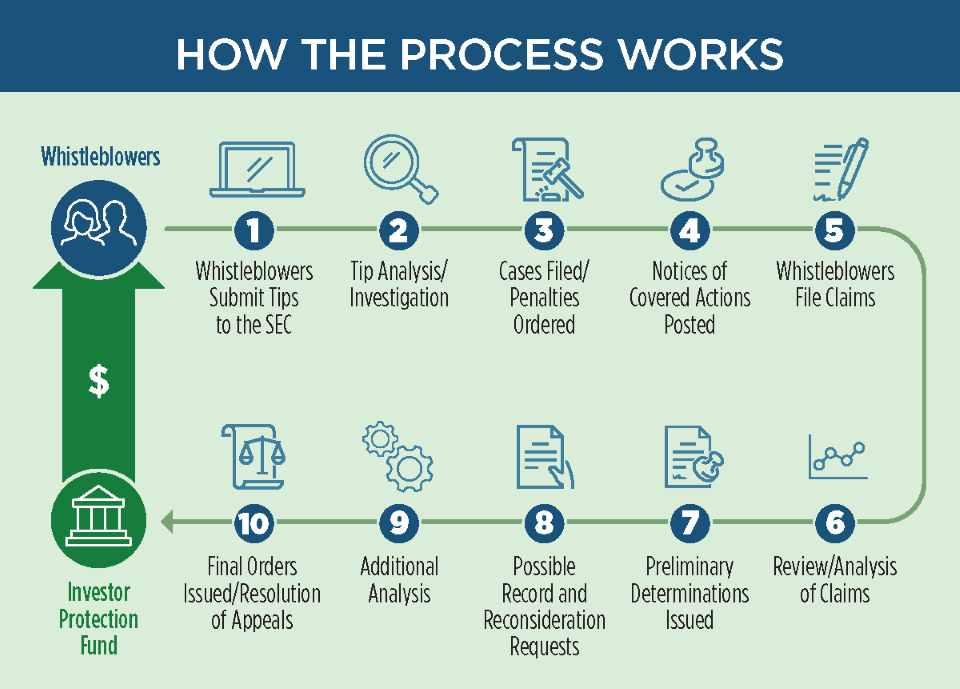Lamberton Law Blog
Stay up to date on current developments in employment law and at the Lamberton Law Firm
The SEC Whistleblower Program
May 20, 2024
What is the SEC Whistleblower Program?
The SEC Whistleblower Program was created as part of the Dodd-Frank Wall Street Reform and Consumer Protection Act in 2010, in the wake of the Great Recession financial crisis. The program provides monetary awards and anti-retaliation protections for individuals who report violations of federal securities laws to the Securities and Exchange Commission (SEC). Under the program, whistleblowers who provide original information that leads to a successful enforcement action resulting in monetary sanctions over $1 million are entitled to an award of between 10% and 30% of the amount collected. The program also prohibits employers from retaliating against whistleblowers and provides a private right of action for employees who experience retaliation.
Why Blow the Whistle?
Deciding to become a whistleblower is not easy. You may worry about jeopardizing your career, straining relationships with colleagues, or even facing legal consequences yourself. But there are compelling reasons to come forward if you witness securities fraud or other misconduct:
- It's the right thing to do. Financial fraud harms investors, destabilizes markets, and undermines public trust. By reporting wrongdoing, you can help hold bad actors accountable and prevent future misconduct.
- You can make a real difference. Since the program's inception, the SEC has received tens of thousands of whistleblower tips and ordered close to $2 Billion in whistleblower awards. In one case in 2023, the whistleblower received $279 Million.
- You have meaningful protections. The Dodd-Frank Act prohibits employers from retaliating against whistleblowers and provides for double back pay plus reinstatement for those who experience retaliation. You can also report anonymously if you are represented by counsel.
- You may be entitled to a substantial award. With awards in the range of 10-30% of monetary sanctions, the financial incentives for whistleblowing can be significant.
Common Types of Securities Violations Reported
The SEC Whistleblower Program covers a wide range of misconduct, but some of the most common types of securities violations reported include:
- Accounting fraud and improper revenue recognition
- Insider trading
- Ponzi schemes and other offering frauds
- Foreign bribery and FCPA violations
- Misleading or incomplete disclosures
- Market manipulation
If you've observed these or other potential violations of federal securities law, you may have a viable whistleblower claim. An experienced Pittsburgh employment lawyer can help you assess your claim and navigate the process of reporting to the SEC.
The Whistleblowing Process
If you're considering blowing the whistle, it's important to understand the process. Here are the key steps:
1. Consult with an experienced whistleblower attorney. An attorney can help you assess your claim, protect your identity, and maximize your chance of receiving an award.
2. Gather evidence of the potential violation. Collect any documents, emails, recordings, or other evidence that may substantiate your claim. Be sure to follow all applicable laws and company policies.
3. Submit a tip to the SEC. You or your attorney will submit a tip using Form TCR, either online or by mail or fax. The form will ask for details about the alleged violation and your evidence.
4. Cooperate with any resulting investigation. If the SEC opens an investigation based on your tip, you may be asked to provide further information or assistance. Cooperating fully can enhance your whistleblower claim.
5. Wait for resolution. SEC investigations can be lengthy, often lasting several years. You may not receive updates on the status of the investigation, and you need to watch for postings about your case on the SEC's website.
6. Apply for your award. Once an enforcement action has been resolved, you have 90 days to apply for your whistleblower award using Form WB-APP. The SEC will then determine your eligibility and the amount of your award.
While the process can be long and uncertain, the SEC Whistleblower Program offers real benefits and protections for employees who speak out about corporate wrongdoing.

Anti-Retaliation Protections
The SEC Whistleblower Program prohibits employers from retaliating against employees who report potential securities violations, whether internally or to the SEC. Retaliation can include firing, demoting, harassing, or otherwise discriminating against a whistleblower.
If you experience retaliation for whistleblowing, you have legal options. The Dodd-Frank Act allows you to sue your employer directly in federal court, without first filing an administrative complaint. You are entitled to reinstatement, back pay, and other damages if you prevail.
However, it's important to note that to be protected under Dodd-Frank, you must report your concerns to the SEC. Internal reporting alone is not sufficient - although you should still consult with an employment attorney before reporting, to ensure you are proceeding in the safest and most strategic manner.
Conclusion
Blowing the whistle on corporate fraud takes immense courage. But thanks to the SEC Whistleblower Program, employees who speak out now have both meaningful protections and the potential for significant financial rewards. If you've witnessed securities violations at your workplace, know that you have options. An experienced Pittsburgh whistleblower attorney can guide you through the process and fight for your rights every step of the way.
The opinions expressed above are not legal advice. If you are considering becoming a whistleblower, please consult with a qualified Pittsburgh employment attorney to discuss your specific situation.